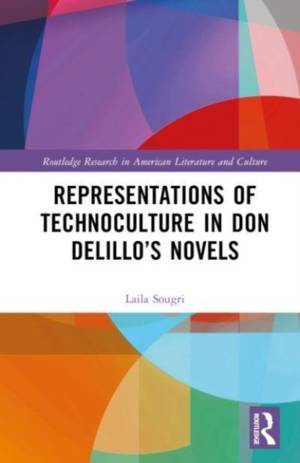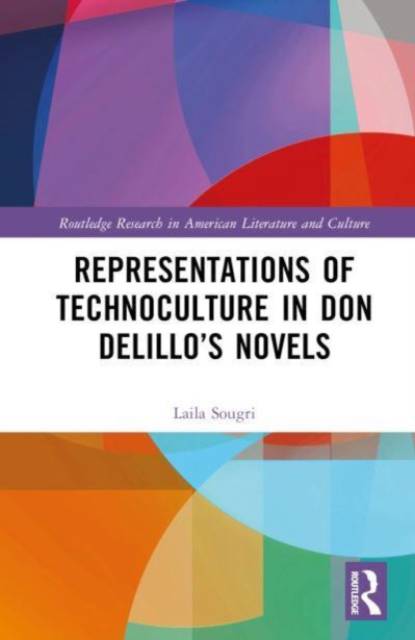
- Afhalen na 1 uur in een winkel met voorraad
- Gratis thuislevering in België vanaf € 30
- Ruim aanbod met 7 miljoen producten
- Afhalen na 1 uur in een winkel met voorraad
- Gratis thuislevering in België vanaf € 30
- Ruim aanbod met 7 miljoen producten
Omschrijving
This book is the first to explore technoculture in all of Don DeLillo's novels. From Americana (1971) to The Silence (2020), the American author anatomizes the constantly changing relationship between culture and technology in overt and layered aspects of the characters' experiences. Through a tendency to discover and rediscover technocultural modes of appearance, DeLillo emphasizes settings wherein technological progress is implicated in cultural imperatives. This study brings forth representations of such implication/interaction through various themes, particularly perception, history, reality, space/architecture, information, and the posthuman. The chapters are based on a thematic structure that weaves DeLillo's novels with the rich literary criticism produced on the author, and with the various theoretical frameworks of technoculture. This leads to the formulation and elaboration on numerous objects of research extracted from DeLillo's novels, namely: the theorization of DeLillo's "radiance in dailiness," the investigation of various uses of technology as an extension, the role of image technologies in redefining history, the reconceptualization of the ethical and behavioral aspects of reality, the development of tele-visual and embodied perceptions in various technocultural spaces, and the involvement of information technologies in reconstructing the beliefs, behaviors, and activities of the posthuman. One of the main aims of the study is to show how DeLillo's novels bring to light the constant transformation of technocultural everydayness. It is argued that though such transformation is confusing or resisted at times, it points to a transitional mode of being. This transitional state does not dehumanize DeLillo's characters; it reveals their humanity in a continually changing world.
Specificaties
Betrokkenen
- Auteur(s):
- Uitgeverij:
Inhoud
- Aantal bladzijden:
- 218
- Taal:
- Engels
- Reeks:
Eigenschappen
- Productcode (EAN):
- 9781032526652
- Verschijningsdatum:
- 4/09/2023
- Uitvoering:
- Hardcover
- Formaat:
- Genaaid
- Afmetingen:
- 152 mm x 229 mm
- Gewicht:
- 476 g

Alleen bij Standaard Boekhandel
Beoordelingen
We publiceren alleen reviews die voldoen aan de voorwaarden voor reviews. Bekijk onze voorwaarden voor reviews.











